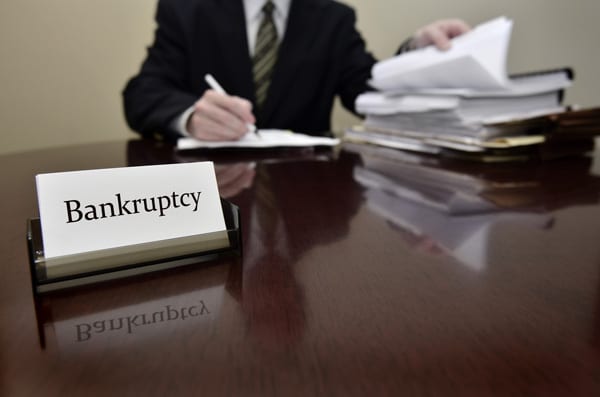Starting and running a business is a rewarding venture, but it comes with its share of risks, especially when it comes to finances. If your business faces insurmountable debt and bankruptcy becomes inevitable, a crucial question arises: Can you be held personally liable for your business’s debts?
The answer depends on several factors, including your business structure, the nature of the debts, and whether personal guarantees are involved. In this blog, we’ll explore how bankruptcy impacts personal liability and what you can do to protect yourself.
1. Business Structure and Personal Liability
The structure of your business plays a significant role in determining whether you’re personally liable for business debts. Let’s take a closer look at the most common business types:
Sole Proprietorship
As a sole proprietor, there’s no legal separation between you and your business. This means you’re personally responsible for all debts. If the business cannot repay its creditors, they can come after your personal assets, such as your savings, home, or car.
Partnership
In a general partnership, all partners share personal liability for the debts of the business. Each partner’s personal assets can be targeted to satisfy business obligations, even if the debt was incurred by another partner. However, in a limited partnership (LP) or limited liability partnership (LLP), limited partners typically aren’t personally liable unless they’ve signed personal guarantees or been involved in managing the business.
Corporation or LLC
A corporation or limited liability company (LLC) generally shields owners from personal liability. Business debts remain separate from personal finances, and creditors can only pursue the company’s assets. However, there are exceptions:
- Personal guarantees: If you personally guaranteed a loan, lease, or other obligation, you are personally liable for that debt.
- Piercing the corporate veil: If your business didn’t follow corporate formalities, commingled personal and business funds, or committed fraud, creditors may seek to “pierce the corporate veil” and hold you personally liable.
2. Personal Guarantees: A Common Liability Trap
Many small business loans, credit lines, or leases require a personal guarantee, especially if your business is young or lacks significant assets. By signing a personal guarantee, you agree to be personally responsible for the debt if the business cannot repay it.
This means that even if you operate under an LLC or corporation, creditors can still pursue your personal assets to satisfy the debt.
How to Avoid Personal Guarantees
While not always possible, you can try negotiating with lenders to remove or limit personal guarantees. Offering additional collateral or a larger down payment may help reduce this risk.
3. What Happens During Business Bankruptcy?
When a business files for bankruptcy, the impact on personal liability varies based on the type of bankruptcy and your role in the business.
Chapter 7 Bankruptcy (Liquidation)
- In a sole proprietorship or general partnership, both business and personal assets may be used to pay creditors. You may also need to file personal bankruptcy if debts are overwhelming.
- For corporations and LLCs, only business assets are liquidated to repay creditors, unless personal guarantees or other liabilities exist.
Chapter 11 Bankruptcy (Reorganization)
- Chapter 11 is typically used by corporations or LLCs to reorganize debts while continuing operations. Personal liability remains limited to any guarantees or breaches of corporate protections.
Chapter 13 Bankruptcy (Debt Repayment Plan)
- Sole proprietors can use Chapter 13 to reorganize both personal and business debts under a repayment plan. This option can help protect personal assets while managing business obligations.
4. Piercing the Corporate Veil: When Protection Fails
Although corporations and LLCs offer strong liability protection, courts may sometimes disregard this separation and hold owners personally liable. This is known as piercing the corporate veil and can happen if:
- The business engaged in fraudulent activities.
- Business and personal finances were commingled.
- The company failed to follow required legal formalities (e.g., filing annual reports, maintaining separate accounts).
To avoid this, always maintain clear boundaries between personal and business finances and adhere to legal requirements.
5. How to Protect Yourself from Personal Liability
Protecting your personal assets starts with proactive planning. Here are some tips:
- Choose the right business structure: Consider forming an LLC or corporation to reduce personal liability.
- Keep finances separate: Avoid mixing business and personal funds to preserve the integrity of your business structure.
- Negotiate debt terms: Limit or eliminate personal guarantees when possible.
- Follow corporate formalities: Keep up with filings, maintain records, and ensure your business operates as a separate legal entity.
- Obtain appropriate insurance: Business liability insurance can provide an extra layer of protection against lawsuits or financial losses.
6. When Personal Bankruptcy Becomes Necessary
If your personal liability is significant and your personal assets are at risk, filing for personal bankruptcy may be a solution. Here’s how it could help:
- Chapter 7 Bankruptcy: Discharges eligible personal debts, including those stemming from business obligations.
- Chapter 13 Bankruptcy: Offers a structured repayment plan to address personal and business debts.
Consulting with an experienced bankruptcy attorney is crucial to understand how personal and business bankruptcies intersect in your case.
Take Control of Your Financial Future
Navigating the intersection of personal liability and business bankruptcy can be overwhelming, but you don’t have to face it alone. At Dennery Law, we help business owners and individuals in Central Kentucky protect their assets and explore effective debt relief solutions. Whether you’re concerned about personal guarantees, corporate formalities, or filing for bankruptcy, we’re here to guide you every step of the way.
Contact Dennery Law today for a free consultation, and let us help you build a path to financial security.

